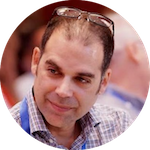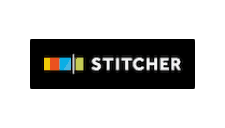Listen to Episode 26
Our Guest Panel of Experts
Show Notes
How do you work with the coaches at your school? How do you partner with them? How do you team with them? What does that look like in your role?
Rebekah (School Leader): One way is setting up planned meetings. We’re trying to gure out how can we help coaches develop coaching strategies that work for our environment. What works at YIS may not work in
every other school, so it could be helping new teachers get used to the culture and, and giving them permission to push the culture. Some of it is with the strategic plan and that’s really she’s (the coach) is a leader talking to the strategic plan – we have a strategic plan that’s built by the community and working with those people who are in teacher-leader, coach-leader models, inuencing that is really important because I don’t know what the current research says on collaboration models -that’s the coaches job to really know that. And so for them to be a resource as we develop our vision for where the school goes next is really important. I think cheerleading is a big part of my job. I love like just saying thank you to coaches – that person really needed you in there. I saw your inuence in there. Knowing when those things are happening is important. It’s not too dissimilar from what coaches do, just on a different level in a different way.
Tico (School Leader): It’s probably a bit the opposite I think in a lot of ways. It feels like, as a school leader, we should be directing the coaches. And what really happens is the opposite. The coaches know what is going on in the classrooms and with students so much better than we do. We tend to get a filtered version of things so the “boots on the ground” type of experience coaches have, is actually illuminating for us about what our school really does look like. I think a lot of times school leaders kind of fool themselves into thinking they know the school and they don’t know it as well as they’d like to believe that they do. In a lot of ways that means that we are subordinate to the coaches and the coaches job is to oftentimes identify how we support them. Eg: “I need help here to help us achieve these goals; I’m seeing this kind of pedagogy or I’m seeing this kind of instructional practice; these are the priorities; this is what it has to do. I’m so glad I’ve got a great coach because they’re helping me gure out what my strategy should be and what my priorities are as I think on the strategic level for the goals of the division.
Niki (Counselor): There’s a system of professional learning. This is how I would probably work with my coach. We have professional learning and so each year we set ourselves goals of what we’d like to achieve and how we want to achieve it. They can be quite fundamental ways of thinking. So not necessarily getting tools to do your job, but maybe trying to shift thinking, shift culture. One of my goals last year was to think about access in our profession. Definitely thinking beyond my school and thinking more about philosophies in my profession. So I would work with a coach to have discussions about how can I make that happen? How can I move that from thinking to practice or how can I shift my thinking to enable that to happen? Why do I want that to happen? Why do I think that’s important? How does it align with my own values, my school’s culture, and you really do get to explore that. Professional learning is the key thing for me here where I have regular chats with my coach about that kind of goal. Then of course as we know with coaching, these things shift and change and morph and then you can refect on them at the end of the year and of course things aren’t contained within a year either. The fact that I’ve got a long-term relationship with my coach means that we can keep coming back to that even if my professional learning goals do shift and change. So that’s one way that I use coaching and it’s really enabled me to grow personally and professionally. Very satisfying. The other way that I use coaching, as you mentioned the digital literacy coach. We’ve got a fantastic digital literacy coach that we work with here, Tricia Friedman and she has absolutely moved me personally and professionally. So I guess professionally the digital literacy piece – making it be digitally literate and that is very empowering in itself. A coach is someone that I can go to with a kernel of an idea and she can help me explore that and move it forward, make it a reality. In terms of our community then, making me better professionally, I can communicate something more effectively going can explore ideas more creatively with the people that I’m working with because of those conversations and very concrete kind of professional ways that I can move on. Personally too, I think a bit like I was saying, I’ve tried to do with my own young people and families I worked with where I try to make them feel a sense of self- efficacy like we were saying and advocacy by allowing me or helping me see what I can do and how I can grow professionally- that does link in personally. Personally I felt like, oh my goodness, look at me. I’m learning something. Even though I’ve been doing this job for a very long time and this has completely shifted the way that I think about this approach. This week actually I was talking to some grade 10 families and parents about this whole process and grade 10’s are really young. They’re 16 years old. They’ve got a long time ahead. Through talking to Trisha about digital literacy, we were talking about metaphors, so this whole thing ended up as a really nice workshop where parents were looking at how they see this as metaphorically in this process and after this talk about self advocacy and how they felt they really needed to be rather than what they wanted to be. I’m not strictly speaking digital literacy, but through a coaching conversation with Trisha,(which was ad hoc because of our culture here) it really was Trisha just coming to tell me a little bit about her holiday I and then it turned into a bit of coaching and some really interesting things came out of that professionally. It’s quite profound our coaching culture.
Adam (Counselor): That happens on a number of levels. On a personal level for instance, just as an anecdote – I was looking for some case management software and there are a number of counseling-specific or social- work specific case management applications out there. Typically they’re either well beyond where they’re intended to plug into, systems that exist in the United States or wherever their country of origin is for that particular style application. What I really needed was like a project management tool. So when I went to our coach here and said, “hey look, I need this project management tool. I knew that they were working with Basecamp so I knew they were familiar with a number of different applications that could be used. It might be useful for me. So rather than learn about all those things myself, it’s like, why don’t I just go to our coach and say, here’s my need, do you know of anything? He then did a rough needs-assessment in some ways, similar to what I I might do in counseling, but it gets down all my needs. What I was hoping for; what are some of the essentials, the things that I absolutely have to have; the non-negotiables; what are the things I would like to see, but maybe not that important; what are some of my pie in the sky and dream ideas that if it had this, would be great? Then he (the coach) comes back with a couple of recommendations. I ended up using an app called Monday and it works great! It does exactly what I need it to do and I’m really pleased with that. So like on an individual level, I go to the coach with my personal needs that might be connected to technology that will help me do my job more effectively. What’s nice is the coach gives me a similar reaction to what I hope I give to people with counseling, which is “tell me what’s going on”. And then we have this conversation and it’s like the open door. It’s not like I’m thinking this person is too busy to help me with my counseling needs. It’s more like “great, thanks for coming to me. I’ll do what I can to help.” I think that is one level on how I work with the coaches. The other side is when we’re trying to help support our community in whatever area. There is inevitably a tech component to the aspect of our community that we’re talking about. Working with the coaches, whether it’s with the parenting workshops that we got started, or whether it’s with some of the social, emotional issues that students are encountering, the coach is invaluable in terms of like looking at those platforms that some of this is happening on. Where are the areas that we can help with educating students about? Maybe they have a coach as a part of those education sessions or maybe they don’t, but it informs my work with kids and with parents. I hope the opposite is true too. That my background with the social emotional stuff helps inform the work that the coaches are also doing and it’s great when we can collaborate. At least, there are a couple of different levels to it. There may be more, but that’s kind of what I was thinking when you asked that question.
Merilyn (Teacher): Well, I’ll talk about my current school at the moment because I’m new to a new school here in Thailand and I have a coach that I’ve worked with quite closely and it was set up quite well actually. We have a standing meeting once a month. Every now and then, if I’m thinking about something, I might jot something down for that particular meeting, but what I feel is actually more effective is that I run into him all the time with casual drop in stuff. He is also working in the year level that I work in so we see each other all the time. We’ve generated a bit of a positive working relationship. I can casually drop in on him with questions, but also I have that time set aside that’s just for me and no interruptions. If I had serious stuff that I want to discuss and it’s going to take awhile, I’ve got that as a backup time once a month.
Jabiz (Teacher): I actually work with two coaches currently. One is a digital literacy coach and I’m a tech mentor so we’re working on various tech projects that are not inde nite but kind of work throughout the year. I meet with her probably once every two weeks and kind of have a project that we’re working on. She kind of checks in and gives me tips on that and coaches me through that process. And then we also have a literacy coach in the Middle School who works with all the English teachers. She’s actually branching out to work with humanities and science as well. We are, Reading Writing Workshop from TC. So it really started from kind of understanding that pedagogy but now that we’ve been working with her for a couple of years, we’ve all kind of just kind of absorbed how that works. Now we’re just working on individual craft practices. So with her currently I’m working on creating online blended learning videos that help students who are maybe on the lower end or the higher end of my teaching so they can independently go to those resources. The coach is helping me do that. Last year we worked on conferencing – how to make my conferences more effective. But again, she kind of comes in and says, what is it that you want to work on? What’s the craft move that you’re interested in and helps me brainstorm. Then we design a plan – how often we’ll meet, and she coaches me through that. She does that with all of our English teachers throughout the year.
Danny (Librarian): We have a couple of people who moonlight as coaches. Nick Garvin, who is a member of #coachbetter, is a kindergarten teacher who moonlights as the technology coach of our school. There is another teacher named Jessica Lee, a grade one teacher, who moonlights as the literacy coach. They’re doing that on basically their prep periods and outside hours. They’re fulfilling that role. Our school is at a size where it’s very close to being able to hire for those types of positions, but we’re all kind of carrying extra loads. We totally do stuff together. Right at the beginning of the school year the primary principal wanted the literacy coach to pushed the importance of picture books to upper primary especially so we did it together, I supported her – she put it all together. We collaborated together. We’re building a maker-space inside the library. Nick and I are doing that together in the library after school and we’re all learning as we go. So we’ve all been doing that together. Very much done in collaboration.
Katy (Librarian): I think it’s different based on each person that I’m working with. So much coaching is about personality and the way that you match with the person and how you get along. Clint and I used to do a lot of work together. We had a really casual, really jokey relationship and I could pop in anytime. Our outside-of- school friendship really helped to build that whereas Matt Broughton and I also have an amazing collaboration relationship, but ours is a purely professional one that happens inside school. What I like about that (and also as a librarian) is that getting to know how you have to interact with that person and the things that they’re going to need and what they’re going to respond to really well is so important. For example, with Matt, I can come in with, well it doesn’t always have to be clear, but I can come in with a very clear task or idea and say, look, this is the thing I’d like to try. And he’s very okay, check, check, boom, boom, boom. Here’s how we’re going to go. We both take our things that we’re going to do and then we’ll go off and maybe work on them separately and bring it back together. Whereas with other people, maybe when I’m working in a coaching relationship with a teacher, some teachers like to meet once and then take some time away to think about it and then come back and meet again. Then we’d plan something together and then we take a little bit more time to think about it and come back again. So I think it’s about finding the rhythm that really works with each person that you’re working with. I’m really looking forward to an opportunity to build a coaching relationship with Kendra Angle who’s our new EAL teacher for the secondary here. She is just really excited and really into reading and building a reading community and she also has all this skill and background knowledge related to EAL. That’s not my strength, so I’m hoping that she and I can have more of a regular, consistent meeting over the course of the year where I try to infuse, (I don’t want to say everything I do because if she watches this, this might feel really overwhelming) but when I get to infuse everything that I do with her EAL knowledge to try and reach some of these kids that maybe I haven’t been doing as strong of a job as I would like to.
More Coaching Resources For You!
FREE DOWNLOAD
If you liked this video, check out our most popular free digital download for coaches: Top 5 Strategies for Your Coaching Toolkit: https://edurolearning.lpages.co/top-5-strategies-for-your-coaching-toolkit
JOIN OUR MAILING LIST
Sign up for our #coachbetter mailing list to receive a newsletter every other week all about coaching in a school context. Each FREE newsletter features one of our relevant coaching videos, a practical coaching tip you can use right away, plus a great resource created or selected by Kim, Clint or Chrissy to help you #coachbetter!
https://edurolearning.lpages.co/coach-newsletter-sign-up/
#COACHBETTER ON FACEBOOK
Connect with other coaches, just like you, in our free #coachbetter Facebook group:
https://www.facebook.com/groups/coach.better/
EVEN MORE COACHING RESOURCES
All of our Eduro Learning coaching resources are compiled here:
https://edurolearning.com/coachbetter/
If there’s something you’re interested in, and we don’t have it, let us know!
PRIVATE COACHING
Or if you want to see what the private mentorship experience is like, check out our Private Coaching sessions – and get your first coaching session for free – here:
https://edurolearning.com/private-coaching/
ABOUT #COACHBETTER
We’re passionate about the impact instructional coaching can have on school culture, student learning and teacher professional growth. This podcast allows us to share inspiring ideas about coaching through conversations with innovative educators from around the world. Let us help you #coachbetter! We would love to hear your thoughts, ideas and questions so please drop us a comment below!
Registration is Open!
The Coach MicrocredentialProgram begins April 28, 2019! Places are filling up fast – there’s only one place left in the Premium Cohort!
Click the button below to see EXACTLY what you get with The Coach Microcredential Online Mentorship Program.
Your Show Host
Kim Cofino

Your Slow Chat Hosts
Connect with our current participants and graduates while discussing the content of this episode
on our #coachbetter Twitter slow chat
NICK GARVIN

@NicholasKGarvin
JANA POUKKA

@jpoukka
VERENA ZIMMER

@blaho_blaho
Connect with Us










Recent Comments